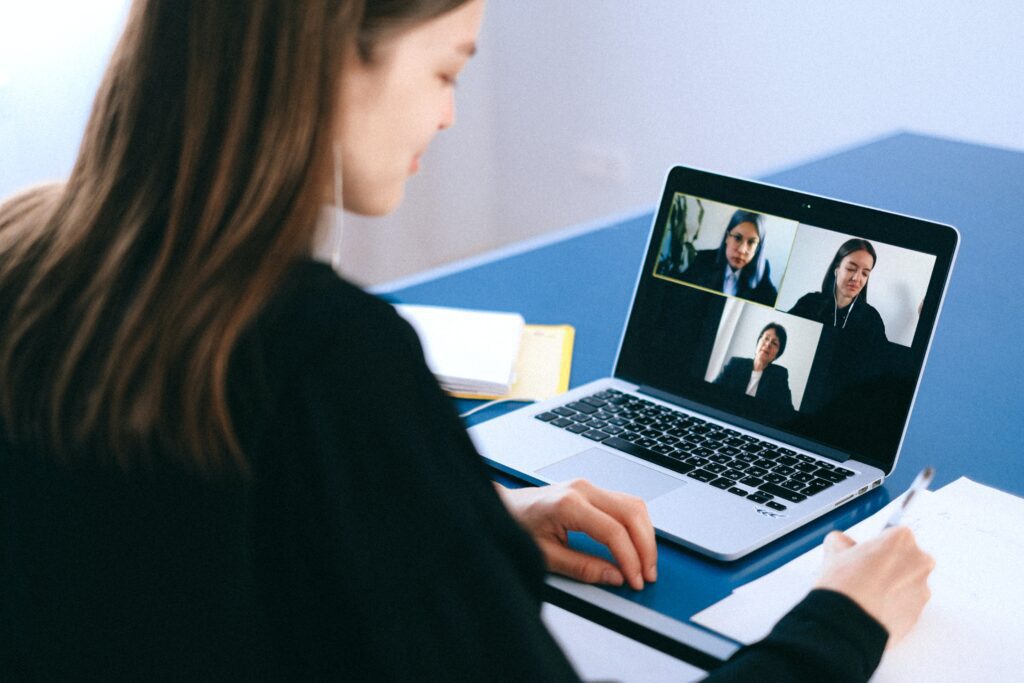Introduction
Job interviews are a crucial part of the job search process. They give you a chance to make a good impression on the hiring manager and convince them that you’re the best candidate for the job. But interviews can also be nerve-wracking, especially if you’re not prepared. That’s why it’s important to do your homework and prepare for your interview as much as possible.
In this blog post, we will delve into the art of interview preparation, equipping you with the strategies and tips you need to succeed in your next interview. Whether you’re a seasoned professional or a recent graduate, these insights will help you approach interviews with confidence and poise.
Types of interview
There are several types of interviews that employers use to assess candidates’ qualifications, skills, and suitability for a particular job. Each type of interview serves a specific purpose in the hiring process. Here are some of the most common types of interviews:
- Face-to-face This is the most common type of interview. You’ll attend the employer’s office and be questioned on your suitability for the job by an individual or panel. Face-to-face interviews often last 45 minutes to two hours, and exams and activities may come before or after them. Questions could be competency-based or strength-based.
- Video – Video interviews are similar to in-person interviews but conducted remotely using video conferencing software like Zoom or Skype. They are becoming more common, especially for remote job positions. Video interviews can be live or pre-recorded and tend to last around half an hour.

- Telephone – often used by employers early in the application process to filter large numbers of applicants. If you’re successful, you’ll typically be invited to a face-to-face interview or assessment center. Expect a telephone interview to last around half an hour.
- Technical Interview: assess a candidate’s knowledge and skills related to a specific technical field, such as programming, engineering, or IT. These interviews often include problem-solving exercises and technical questions.
- Panel Interview: a candidate is interviewed by a group of interviewers representing different departments or roles within the company. This can be intimidating but provides a comprehensive evaluation.
What to take
- Your CV
- pen and notebook
- Your academic certificates
- photo ID
- a bottle of water
In addition, for online interviews, you may also need:
- laptop/computer
- headset/earphones
- microphone
- log in for the software you need to use.
Preparation Before the interview
1. Researching the Company and Role
It’s critical to have a solid understanding of the organization and the position you’re seeking before attending an interview. Study the organization’s vision, core principles, and culture as well as any current events or other developments that might be relevant to your interview. This information can help you tailor your answers and demonstrate your interest in the company.
2. Review the Job Description
Make sure you read the job description in its entirety and comprehend the duties and requirements for the position. This will assist you in crafting well-considered responses that meet the company’s requirements and show that you are a good fit for the position. Additionally, it’s a good idea to consider any relevant experiences or abilities you might emphasize in the interview.
3. Mastering Common Interview Questions
The most effective approach to excel in an interview is to be well-prepared with well-crafted responses to interview questions. While you can’t predict the exact questions you’ll face, your chances of success can greatly improve by researching typical interview inquiries and formulating concise 50- to 100-word answers. Be ready to address questions such as
- Why should we hire you?
- Why are you looking for a new job?
- Where do you see yourself in five years?
- If I called your current/previous employer, what would they say about you?
- Tell me about a challenge you overcame
- What are two examples of how your previous work experience will help you do well in this job?
During the interview
1. Arrive Early
Plan to arrive at least 10-15 minutes early for your interview. This will give you time to check in with the receptionist, use the restroom, and calm your nerves before the interview. If you’re unsure of the location or parking situation, do a test run ahead of time to avoid any last-minute surprises.

2. Dress Appropriately
Considering the company’s culture and dress code, make sure you dress suitably for the interview. Always err on the side of overdressing professionally rather than underdressing. Make sure your clothes are clean and wrinkle-free, as well as your hair and cosmetics (if applicable).
Do some mock interviews: A mock interview with friends or family will help you slip into the zone. You can discuss your work experience and career goals professionally and concisely.
3. Make a Strong Impact in the Initial Five Minutes
- Show enthusiasm and appreciation for their time.
- Begin with a positive remark about the company.
- Say something like, “I’m excited about the opportunity to contribute to [company] in [specific area].
4. Pay Close Attention
Listen closely to the interviewer’s questions and make sure you understand them before responding. Give a thoughtful response after pausing for a time. Ask for an explanation if you don’t understand the question.
5. Show Your True Self
During the interview, be genuine and allow your personality to shine. Authenticity can set you apart from other applicants and aid the interviewer in determining whether you fit the company’s culture.
6. Think positive
- Avoid complaining during interviews.
- Even if asked about negative experiences, stay positive.
- Don’t answer directly about your least favorite courses or previous job dislikes.
- Highlight positive aspects and lessons learned instead.
- Emphasize what you appreciated or how experiences helped you grow.
7. Bring a Copy of Your Resume
Make sure you bring a copy of your resume, along with any other relevant documents or certifications. This shows that you’re organized and prepared, and can also help refresh your memory if you need to reference any past experiences or accomplishments during the interview.
8. Maintain Professional Decorum
During the interview, behave professionally by shaking the interviewer’s hand firmly, making eye contact that is suitable, and not interrupting or talking over them.
9. Maintain Proper Body Alignment
Maintain a confident, professional posture throughout the interview. Your feet should be firmly planted on the ground when you sit up straight. Avoid moving around or slouching, which can suggest trepidation or lack of confidence.
Handling Tough Situations
1. Demonstrate your expertise
Look for opportunities to insert specific examples of your professional experience and expertise into the conversation. Did you improve a process or solve a problem at your current or previous job? Have you read books, attended conferences, or written blog posts that are relevant to the position?
2. Research the Interviewer
Research the interviewer in advance if you can to learn more about their background and hobbies. This can help you build rapport and find common ground during the interview.
3. Show confidence and lead the interview.
Politeness should not lead to passivity in interviews. Treat it like a conversation where both you and the interviewer contribute. Don’t wait for questions; ensure the interviewer learns about your strengths.
4. Prepare to address unlawful or inappropriate inquiries
Interview questions about personal details like race, age, gender, religion, marital status, or sexual orientation are not appropriate and might even be illegal. If faced with such questions, you can respond by asking why it’s relevant or address the underlying concern, like your commitment to your career.
After the interview
Follow Up
After the interview, send a thank-you note or email to the interviewer. This shows that you’re interested in the position and appreciate the opportunity to interview. You can also use this as an opportunity to reiterate your interest in the company and emphasize any relevant skills or experiences that you may have overlooked during the interview.
Don’t give up!
After a disappointing interview, don’t give up. Reach out to the interviewer via note, email, or call. Admit the communication hiccup, highlight your value, and express your eagerness for the role. Success depends on the company and your effort, but not trying means zero chance. This approach has worked for many, so give it a shot!
Conclusion
Preparing for an interview requires a bit of research and planning, but it’s well worth the effort. By following these tips, you can demonstrate your skills and experience, showcase your interest in the company, and ultimately land your dream job. Good luck!
For more Amazing and Unique information and Posts Visit our Home page... If you have any suggestions or information feel free to share with us ….







